Are you ready to channel your inner marketing guru? This thorough “How to Become a Marketing Manager: 15 Steps” guide will assist you in navigating the route to success one step at a time. Our article is tailored to give you the ultimate head start, equipped with:
- Actionable steps to kick-start your journey
- Practical Insights to hone your manager skills
- Anecdotes and real-life manager examples for inspiration
As you delve deeper into this treasure trove of knowledge, you’ll discover how Plerdy CR analysis can boost your expertise, shedding light on customer behavior and preferences. With this valuable information in your toolkit, you’ll be one step closer to achieving marketing mastery.

This guide is your trusty companion, leading you through every twist and turn of the marketing realm. So, buckle up, and let’s embark on this thrilling adventure toward becoming a top-tier marketing manager! Embarking on the path to marketing management, one must navigate a labyrinth of essential steps. By reviewing the 15-step roadmap, aspiring marketing gurus can confidently navigate toward their goals.
What Does A Marketing Manager Do?
In the bustling commerce arena, marketing managers are the maestros orchestrating successful campaigns that capture the attention of potential customers. Steering the helm of marketing initiatives, these experts juggle various responsibilities:
- Strategizing brand promotion
- Identifying target audiences
- Conducting market research
- Supervising advertising and PR efforts
- Evaluating campaign performance
Adept at crafting engaging narratives, marketing managers breathe life into promotional materials and foster meaningful customer connections. Syncing with cross-functional teams ensures a consistent brand voice throughout all channels, from digital platforms to traditional media.
As trendsetters, they constantly look for innovative methods to outshine competitors and maximize return on investment. By harnessing data-driven insights, they skillfully refine their approach, striking the perfect balance between creativity and pragmatism.
Marketing managers are the linchpins who drive business growth, transform the ordinary into the extraordinary, and guide companies toward a flourishing future in the marketplace.
Top Skills For A Marketing Manager

In today’s dynamic business landscape, marketing managers must possess a diverse skill set to excel and lead their teams to success. Below are the top skills for a marketing manager that can make all the difference:
- Strategic thinking: Crafting masterful plans to propel brand visibility and outmaneuver the competition.
- Analytical prowess: Deciphering valuable insights from heaps of data to optimize marketing strategies with Plerdy tools.
- Communication finesse: Articulating clear ideas, persuading stakeholders, and fostering team collaboration.
- Digital acumen: Navigating the ever-evolving online ecosystem and leveraging cutting-edge tools for maximum impact.
- Creativity: Inject innovation into campaigns, fueling consumer interest and promoting brand loyalty.
Picture a marketing manager deftly weaving these skills together, like an artist blending colors on a canvas. This virtuoso navigates the ebb and flow of the marketplace, transforming challenges into opportunities. With this arsenal of skills, marketing managers bolster their company’s presence, generate demand, and leave a lasting impression in the minds of consumers.
Why Become A Marketing Manager?

Embarking on a journey as a marketing manager offers a plethora of rewarding experiences and opportunities for personal and professional growth. Here’s why you should consider stepping into the shoes of a marketing maestro:
- Career prospects: Marketing management unlocks doors to various industries, giving you the flexibility to choose your desired sector.
- Creative freedom: Unleash your inner artist, crafting captivating stories that resonate with audiences worldwide.
- Impact: Leave your mark on the world by molding brands into household names and driving business success.
- Dynamic environment: Revel in the fast-paced nature of marketing, where innovation and adaptation are the norms.
- Collaboration: Build strong bonds with diverse teams, honing your interpersonal skills and leadership prowess.
You’ll control brand and company growth as a marketing manager. This rewarding role beckons to those who thrive on challenges, providing the perfect stage to showcase their skills and make their mark in the business world.
15 Steps: How to Become a Marketing Manager
Marketing management requires a maze of steps. However, aspiring marketing manager and gurus can confidently reach their goals by carefully examining the 15-step blueprint. Then, with hard work, you can become a marketing pro.
1. Research the Marketing Manager Role
![]()
Embarking on a journey to become a marketing manager demands thorough research into the role’s complexities and subtleties. As you delve into marketing management, you’ll uncover this rewarding career’s myriad management skills and responsibilities.
To get started, consider these key aspects of the marketing manager position:
- Planning and strategy: Develop marketing plans that align with company goals and target audience needs
- Team management: Lead manager, motivated, and coordinate diverse teams of creative professionals
- Budgeting: Allocate resources efficiently to maximize ROI on marketing manager initiatives
- Analytics: Track and analyze campaign performance to inform future strategies
As you investigate the marketing manager role, immerse yourself in industry publications and follow thought leaders to stay current with emerging trends. A comprehensive understanding of the ever-evolving marketing landscape will position you to navigate challenges and seize opportunities expertly.
Communicate, create, and think strategically. Hone your abilities through hands-on experience and consider pursuing relevant certifications to bolster your expertise further. By meticulously researching the marketing manager role, you’ll set the stage for a prosperous career—ready to manage dynamic campaigns and drive your organization’s success.
2. Pursue a Relevant Manager Degree
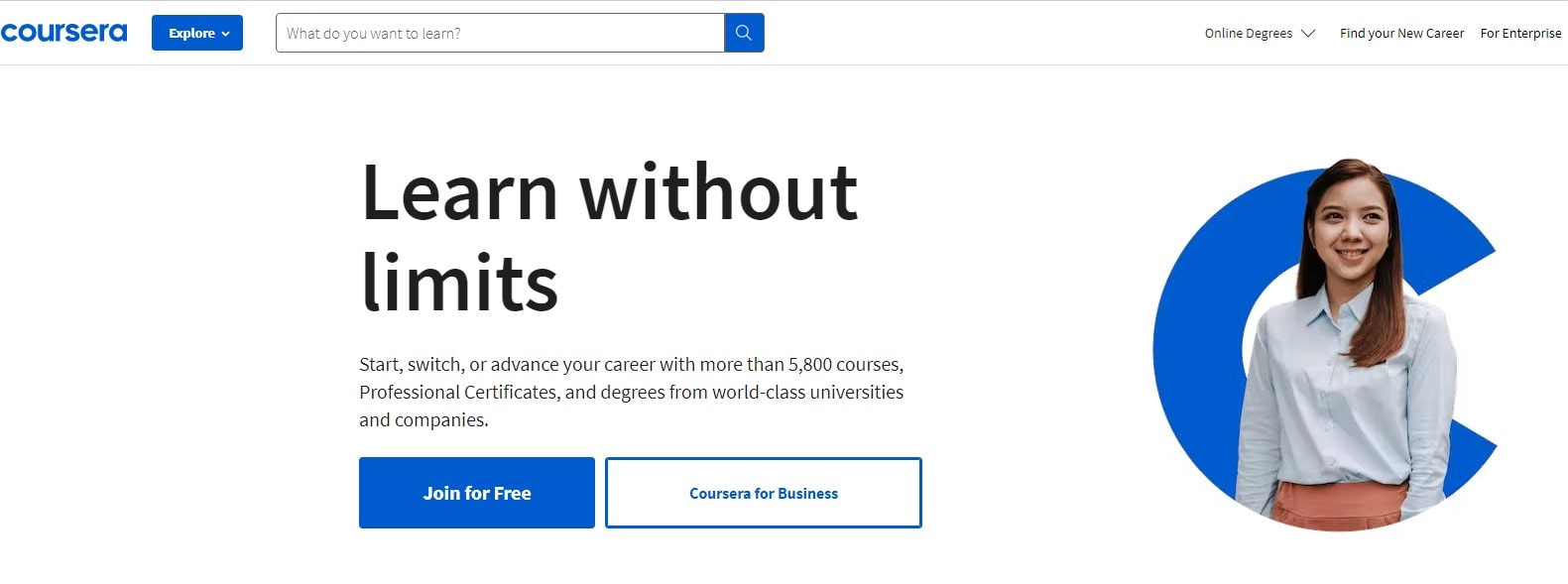
Marketing managers need a relevant degree to succeed. Higher education lays the groundwork for a thriving career in marketing management, providing a solid foundation in essential concepts and techniques.
A degree in marketing or a related field, such as business administration or communications, offers an extensive curriculum designed to nurture your abilities. As you explore various degree programs, consider the following focal points:
- Marketing principles: Gain insight into core marketing concepts, such as target audience identification and marketing mix formulation
- Consumer behavior: Understand the psychological factors driving consumer decisions and how to leverage this knowledge in marketing strategies
- Digital marketing: Acquire the know-how to navigate the ever-evolving digital landscape, mastering techniques like search engine optimization and social media marketing
- Data analysis: Learn to interpret marketing data, draw meaningful conclusions, and make data-driven decisions
Upon completing your degree, you’ll have a well-rounded understanding of the marketing world, primed to dive headfirst into the industry. However, remember that learning doesn’t stop with a manager diploma; continue to expand your skillset through professional development opportunities, certifications, and workshops. With a relevant degree and a commitment to lifelong learning, you’ll be poised to manage innovative marketing campaigns and steer your organization toward success.
3. Gain Practical Marketing Experience

As an aspiring marketing manager, gaining practical experience is vital in honing your skills and developing a keen understanding of the industry. Accumulating hands-on experience enhances your resume and instills confidence in managing marketing campaigns effectively.
Consider the following opportunities to immerse yourself in the world of marketing management:
- Internships: Land a marketing internship to gain real-world experience, work alongside professionals, and potentially secure a full-time position
- Entry-level positions: Begin your manager career in a junior role, such as a marketing coordinator or assistant, to learn the ropes and advance within the organization
- Freelance projects: Take on freelance marketing tasks to broaden your skillset, expand your portfolio, and build a network of clients
- Volunteering: Offer your marketing expertise to non-profit organizations or community events, showcasing your commitment to the profession and giving back
These experiences will help you apply theory to marketing managers’ daily tasks. By seeking opportunities to gain practical experience, you’ll cultivate the skills and knowledge necessary to excel in your marketing management career, ultimately driving your organization’s success with innovative and impactful campaigns.
4. Develop Key Marketing Manager Skills

In the fast-paced world of marketing management, developing key marketing skills is crucial for success. These talents enable you to plan and execute unique campaigns that boost your company’s performance.
Consider refining the following essential skills to excel in your marketing management career:
- Communication: Master the art of persuasive messaging and active listening to convey ideas clearly and foster productive relationships with clients, team members, and stakeholders
- Strategic thinking: Cultivate the ability to analyze market trends, anticipate challenges, and develop marketing strategies that align with your organization’s goals and target audience needs
- Creativity: Unleash your imagination to devise unique marketing campaigns that captivate audiences and leave a lasting impact
- Data analysis: Sharpen your analytical skills to interpret marketing data, make informed decisions, and optimize campaign performance
As you work on strengthening these core competencies, remember the importance of staying current with industry trends and evolving technologies. Embrace opportunities for professional development, such as workshops, webinars, and networking manager events, to further enhance your skill set. By dedicating yourself to developing key marketing skills, you’ll be well-equipped to manage high-performing campaigns that catapult your website to a new summit of success.
5. Build a Strong Marketing Portfolio
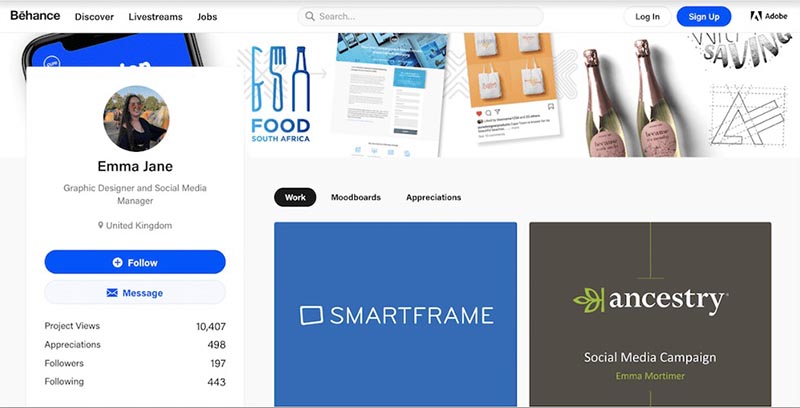
In the competitive landscape of marketing management, a strong portfolio is your ticket to showcasing your skills, achievements, and value to potential employers. Crafting a compelling and diverse portfolio that highlights your best work is crucial for capturing the attention of hiring managers and setting yourself apart from the competition.
Consider incorporating the following elements to create a robust marketing portfolio:
- Successful campaigns: Showcase a variety of marketing campaigns, including digital, print, and social media, that demonstrate your creativity and strategic prowess
- Quantifiable results: Highlight the tangible outcomes of your marketing efforts, such as increased sales, boosted engagement, or improved brand awareness, to prove the effectiveness of your work
- Client testimonials: Include praise from satisfied clients to add credibility to your portfolio and illustrate your ability to cultivate strong professional relationships
- Case studies: Provide in-depth analyses of specific projects, detailing the challenges, solutions, and outcomes, to give potential employers a glimpse into your problem-solving skills and adaptability
As you build your manager portfolio, keep it updated with your latest and most impressive work. Regularly fine-tune your presentation to reflect your evolving manager skills and accomplishments. A well-crafted portfolio is an invaluable tool in your marketing management career, helping you land coveted roles and showcase your expertise to the world.
6. Acquire Digital Marketing Manager Expertise

In today’s technology-driven world, acquiring digital marketing expertise is indispensable for aspiring marketing managers. Staying current with digital trends and tools is essential for creating effective marketing tactics that resonate with your target audience.
Focus on the following areas to enhance your digital marketing prowess:
- Search engine optimization (SEO): Master the art of optimizing your online content, and drive organic traffic
- Social media marketing: Hone your skills in crafting engaging social media campaigns that captivate users and foster brand loyalty across various platforms, such as Facebook, Instagram, and LinkedIn
- Content marketing: Provide captivating, value-driven content that engages your audience, positions your brand as an industry leader, and converts.
- Email marketing: Develop expertise in designing targeted email campaigns that nurture leads, boost customer engagement, and generate sales
As you work on acquiring digital marketing expertise, consider participating in industry-specific workshops, online courses, and webinars to stay current with the latest advancements. Networking with professionals and joining industry forums can provide valuable insights into emerging trends and best management practices. You’ll be ready to handle the changing digital landscape and lead your organization to new heights by building a solid digital marketing foundation.
7. Master Project Management
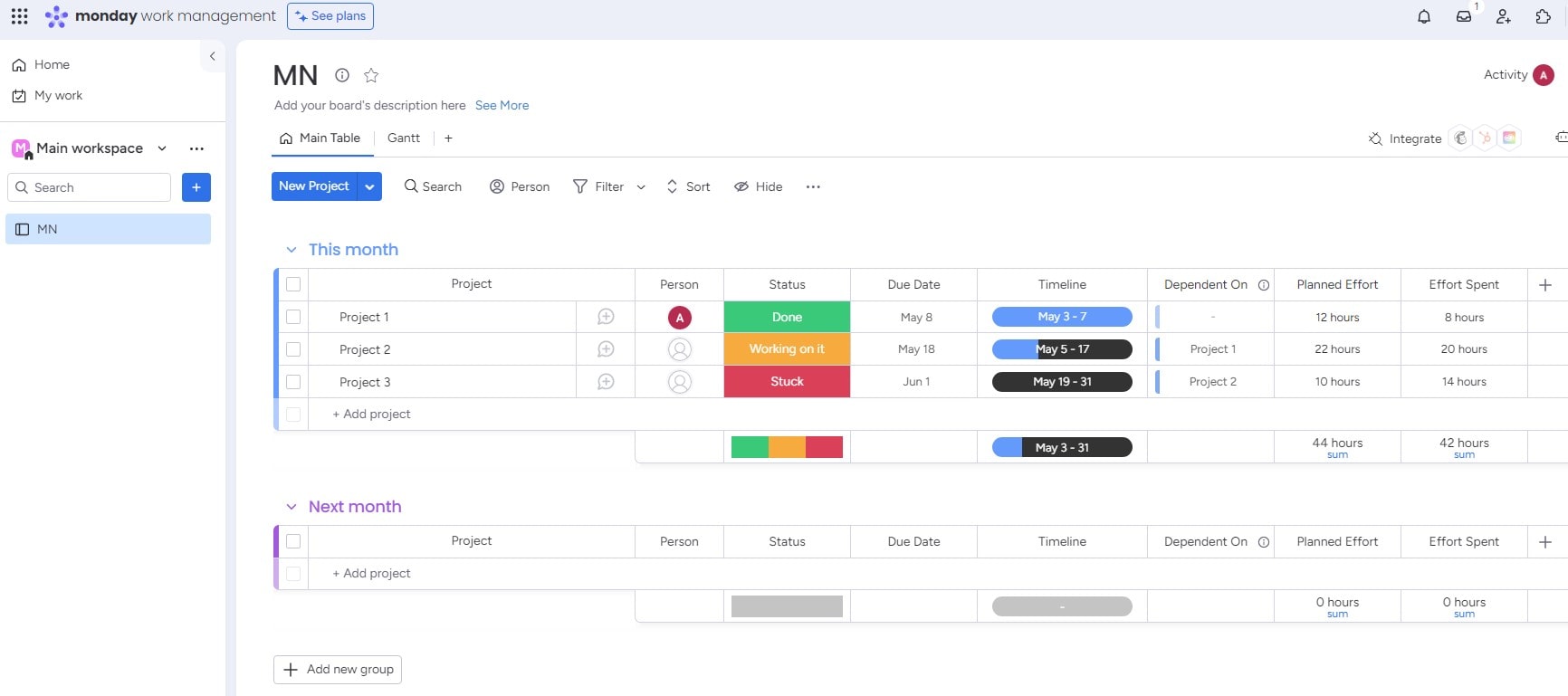
Mastering project management is a vital skill for marketing managers, enabling them to efficiently oversee marketing campaigns from conception to completion. Being adept at project management ensures you can allocate resources effectively, meet deadlines, and achieve desired outcomes while staying within budget constraints.
Here are some essential project management skills to develop as a marketing manager:
- Setting clear objectives: Have clear project goals so everyone knows their roles
- Time management: Prioritize tasks and develop a realistic timeline to complete projects without sacrificing quality
- Risk assessment: Identify potential challenges and develop contingency plans to minimize their impact on the project’s success
- Team collaboration: Foster a collaborative work environment where team members communicate openly, share ideas, and work together to achieve common goals
To enhance your project management skills, consider obtaining certifications such as Project Management Professional (PMP) or Agile Certified Practitioner (PMI-ACP). In addition, participating in workshops, seminars, and online courses can provide valuable marketing insights into best practices and methodologies. By mastering project management, you’ll be better equipped to lead your team, streamline processes, and deliver successful marketing campaigns that drive results.
8. Network with Industry Manager Professionals

Networking with industry professionals is a powerful way to accelerate your career as a marketing manager. Building meaningful connections with seasoned marketers, mentors, and peers provides invaluable opportunities for learning, collaboration, and even job prospects. Additionally, a robust professional network can inform you about the latest trends, insights, and innovations in the marketing landscape.
Here are some practical tips for networking with industry professionals:
- Attend industry events: Conferences, seminars, and workshops offer an ideal platform to connect with like-minded individuals and exchange valuable insights
- Leverage social media: Engage with influencers on LinkedIn, Twitter, and other channels..
- Join professional associations: Becoming a member of a marketing association, such as the American Marketing Association (AMA), can open doors to exclusive networking opportunities and resources.
- Volunteer for industry initiatives: Offer your skills and expertise to contribute to marketing-related projects, events, or committees, thereby expanding your network while demonstrating your commitment to the field
Remember, when networking, it’s crucial to approach each interaction with genuine interest and a willingness to help others. By cultivating meaningful relationships and consistently nurturing your connections, you’ll establish a strong professional network that can propel your career as a marketing manager to new heights, enabling you to manage successful campaigns and contribute to your organization’s growth.
9. Consider Further Education

Marketing managers need more education to keep current in a fast-changing industry. Advanced degrees, certifications, or specialized courses can improve your knowledge, credibility, employment prospects, and marketing campaign management.
Here are some options for further education worth considering:
- Master’s Degree: Mastering marketing strategy, statistics, and commercial operations with an MBA or Master of Marketing is possible.
- Certifications: Acquiring professional certifications like Google Ads or HubSpot Inbound Marketing can demonstrate your proficiency in specific marketing skills and tools.
- Specialized Courses: Enrolling in courses on topics like content marketing, data-driven marketing, or social media management can help you develop niche expertise.
When selecting the right educational path, weigh the time and financial investment against the potential benefits for your career. Coursera and Udemy offer flexible and affordable choices for busy professionals seeking skill upgrades.
In a world where knowledge is power, embracing lifelong learning will give you an edge in the competitive marketing landscape. Remaining informed, improving your skills, and adjusting to the ever-changing business will help you run successful marketing campaigns and develop your firm.
10. Choose a Marketing Manager Specialization
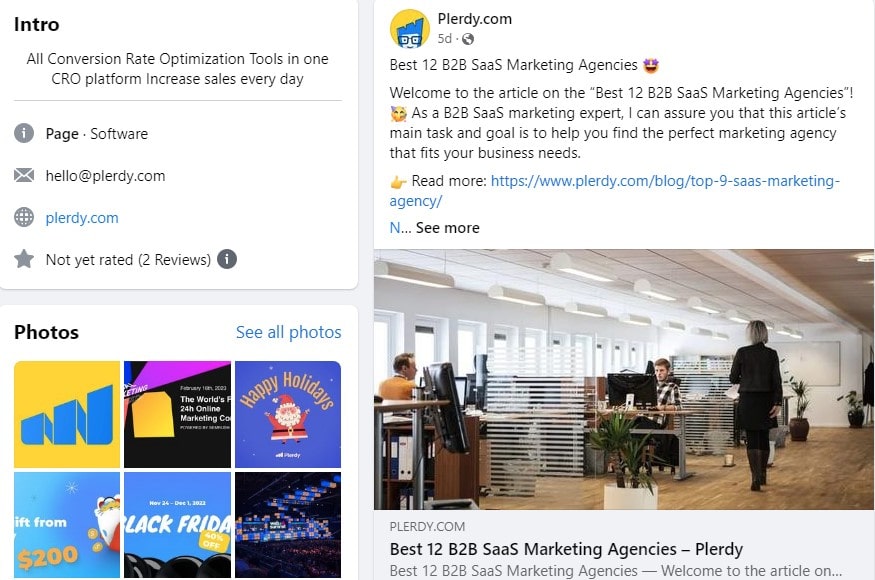
Choosing a specialization in the vast marketing field can be smart for professionals looking to hone their skills and carve out a niche. By focusing on a specific area, you can become an expert, increasing your value to employers and helping you manage marketing efforts more efficiently.
Some popular marketing specializations include:
- Content Marketing: Crafting and distributing valuable content to attract, engage, and retain a target audience.
- Social Media Marketing: Building and nurturing online communities on platforms like Facebook, Linkedin, and Twitter.
- Search Engine Optimization (SEO): Optimizing websites and content to rank higher in SERPs.
- Email Marketing: Using targeted and personalized email campaigns to connect with prospects and customers.
- Influencer Marketing: Collaborating with influential individuals to promote a brand or product.
Choose a specialization based on your interests, strengths, and desired skills. Monitor marketing trends and upcoming prospects.
Ultimately, your chosen specialization should align with your career goals and passions. Being an expert in a marketing field will help you navigate the ever-changing marketing landscape and produce successful campaigns.
11. Update Your Resume

In a fast-paced world where marketing trends and job requirements evolve rapidly, updating your resume is essential for staying ahead. A polished and up-to-date resume helps you manage your career effectively, showcasing your marketing skills and achievements to potential employers.
When refreshing your resume, consider the following tips:
- Highlight Your Marketing Expertise: Clearly outline your marketing experience, including areas of specialization, projects you’ve worked on, and successful campaigns you’ve managed.
- Quantify Your Success: Use data to show how your marketing activities impacted website traffic, conversion rates, or revenues.
- Showcase Relevant Skills: List specific marketing tools and platforms you’re proficient in, like Google Analytics 4, Plerdy, Mailchimp, or Hootsuite. Also, include any certifications or courses you’ve completed to develop your skills further.
- Keep It Current: Update your resume regularly with your most recent work experience and accomplishments. Remove outdated information or positions no longer relevant to your career goals.
- Tailor Your Resume: Customize your resume for each job application, highlighting the skills and experiences that align with the role’s requirements.
Remember, your resume is a marketing tool designed to sell your most valuable asset – yourself. Update your CV and demonstrate your marketing skills to land your ideal job and succeed in your sector.
12. Write a Compelling Cover Letter
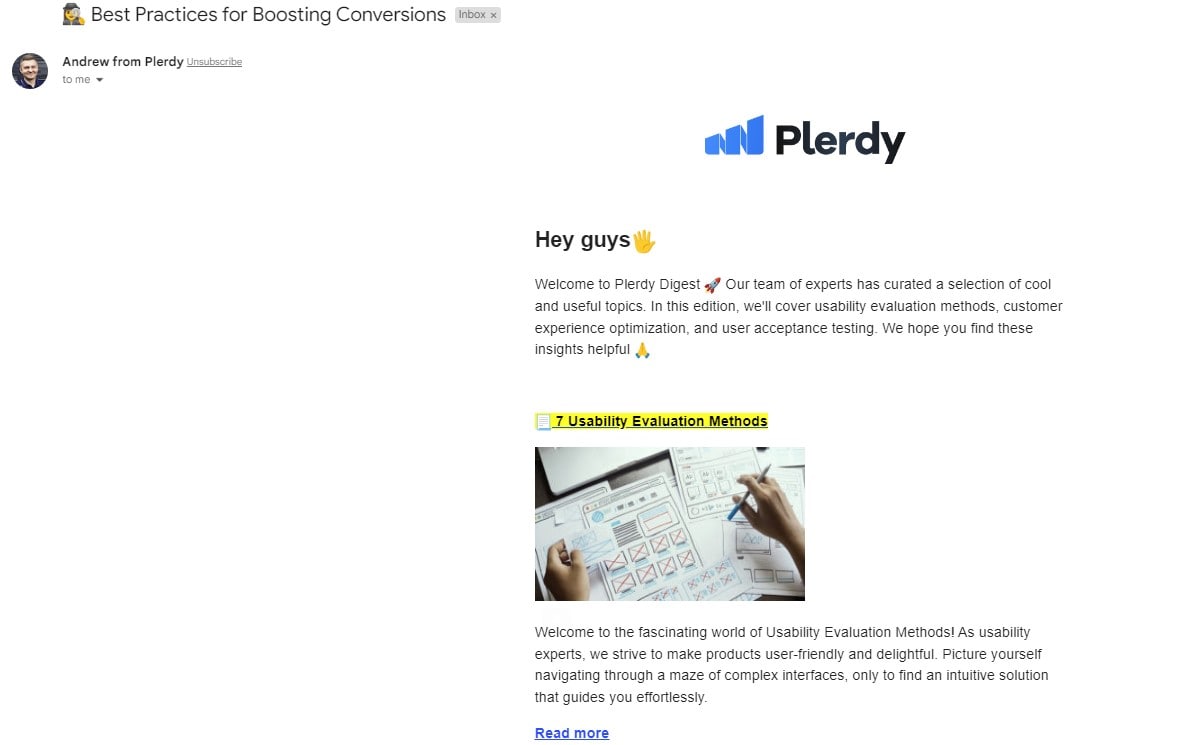
A compelling cover letter can make all the difference when landing your dream marketing job. It’s a great chance to display your abilities, excitement, and value to the firm. To craft a standout cover letter, follow these golden rules:
- Personalize Your Greeting: If possible, address your cover letter to a specific person – this shows you’ve taken the time to research the company and can make a stronger connection with the reader.
- Tell a Story: Use a conversational tone and share a personal anecdote or experience that illustrates your passion for marketing and how it led you to pursue a managerial career.
- Connect the Dots: Explain how your unique blend of marketing skills, experience, and education makes you the ideal candidate for the role. Be specific and mention relevant accomplishments.
- Demonstrate Your Knowledge: Show you’ve done your homework by mentioning recent company achievements or challenges and how you could contribute to their success.
Before you wrap up your cover letter, consider including these elements:
- Call to Action: Encourage the reader to review your resume, check out your portfolio, or schedule an interview.
- Express Gratitude: Thank the reader for their time and consideration, conveying your eagerness to discuss the manager opportunity further.
- Professional Closing: End your letter with a professional sign-off, such as “Sincerely” or “Best regards,” followed by your full name and contact information.
Remember, your cover letter should complement your resume, showing your personality and motivation. By crafting a persuasive and engaging letter, you’ll increase your chances of making a lasting impression and securing that coveted interview.
13. Utilize Job Search Resources

Using the correct materials can help you land your dream marketing job in today’s competitive employment market. Use a variety of job search tools to find hidden possibilities, keep ahead of the curve, and exhibit your unique skills. To make the most of your job search, consider incorporating the following resources:
- Industry-Specific Job Boards: Search niche platforms tailored to marketing professionals rather than wading through generic job sites. These sites often feature exclusive listings and offer a more targeted approach.
- LinkedIn: This powerful networking platform is a treasure trove of job opportunities. Optimize your profile, engage with relevant groups, and use LinkedIn’s job search feature to zero in on marketing roles that match your skills.
- Social Media: Platforms like Twitter and Facebook can be invaluable tools in your job hunt. Follow industry influencers, join marketing-related groups, and share your expertise to build your online presence and attract potential employers.
- Alumni Networks: Connect with fellow graduates from your alma mater to learn about job openings, share advice, and tap into a supportive community of professionals.
- Informational Interviews: Reach out to marketing professionals in your desired field to gain insights, gather advice, and uncover job opportunities not advertised elsewhere.
In addition to these resources, remember to hone your marketing and management skills through ongoing professional development. Staying up-to-date on industry trends and expanding your knowledge will boost your job prospects and show dedication. Finally, embrace the wealth of job search tools at your disposal, and you’ll be well on your way to securing the perfect marketing role.
14. Prepare for Interviews

Acing your marketing interview requires preparation, confidence, and showcasing your unique skills. To put your best foot forward, follow these essential tips to ensure you’re primed for success:
- Research the Company: Dive into the organization’s background, culture, and current initiatives. Familiarize yourself with their products, target audience, and recent marketing campaigns to demonstrate your understanding and passion for their mission.
- Review Your Accomplishments: Reflect on your career achievements and be prepared to discuss how you’ve successfully managed marketing projects. Quantify your results and explain the strategies that led to your success.
- Prepare STAR Responses: Use the STAR (Situation, Task, Action, Result) method to structure your answers to behavioral questions. This technique allows you to convey your experiences and their outcomes.
- Plan for Common Questions: Anticipate typical marketing interview questions, such as:
- How have you improved a marketing campaign’s performance?
- How do you stay current with marketing trends?
- Describe a time when you had to manage a challenging marketing project.
- Practice Active Listening: Engage with the interviewer by attentively listening and responding thoughtfully. This demonstrates your ability to communicate and collaborate with others effectively.
- Dress for Success: Opt for professional attire that aligns with the company’s culture, ensuring you make a strong first impression.
By thoroughly preparing for your marketing interview, you’ll demonstrate your prowess in managing projects and stand out from the competition with your well-honed skills and genuine passion for the field.
15. Embrace Continuous Learning

To thrive in the ever-evolving marketing world, embracing continuous learning is crucial. By honing your skills and staying current with industry marketing trends, you’ll remain competitive and better equipped to manage marketing projects effectively.
Incorporating lifelong learning into your professional life doesn’t have to be daunting – start by setting aside time each week for personal development. Here are a few strategies to keep your marketing knowledge and skills up-to-date:
- Read industry blogs and publications: Stay informed about marketing trends, best practices, and innovative campaigns by following reputable sources.
- Attend webinars and marketing conferences: Expand your network and gain insights from experts by participating in online and in-person industry events.
- Take online courses: Enhance your skillset by enrolling in relevant courses, such as those on marketing analytics, social media management, or content strategy.
- Join professional organizations: Connect with peers and access resources through marketing associations and clubs.
- Learn from peers and mentors: Share experiences and seek advice from colleagues and mentors, as they can provide valuable insights and support.
By committing to continuous learning, you’ll stay ahead of the curve, adapt to new marketing techniques, and become a valuable asset in your field. So embrace the journey of professional growth, and watch as your career flourishes.
Bottom Line
As we conclude the “How to Become a Marketing Manager: 15 Steps” article, it’s time to reflect on the valuable insights you’ve gained. ⚡ From mastering essential marketing skills to exploring various sectors like finance, insurance, and healthcare, you now possess the knowledge to dive confidently into marketing management.
Let’s recap some key takeaways:
- A strong foundation in marketing concepts and strategies is crucial
- Building expertise in different industries opens up a world of possibilities
- Real-life experiences and anecdotes can be your secret sauce for success
- Don’t forget the importance of staying on top of trends and technology
To truly excel as a marketing manager, remember to harness the power of Plerdy and CRO, elevating your campaigns to new heights. ⚡
The future is bright for aspiring marketing managers, whether you’re looking to manage credit card promotions or steer mortgage lenders’ marketing campaigns. Armed with the knowledge from this article, you’re ready to embark on a rewarding career in marketing management. It’s time to make a splash in the marketing world, and remember that practice makes perfect!
